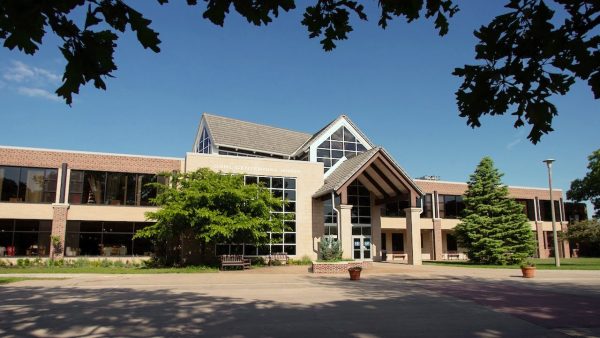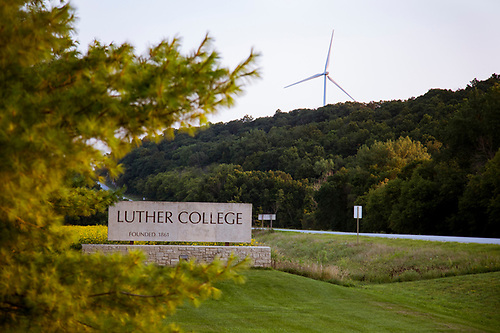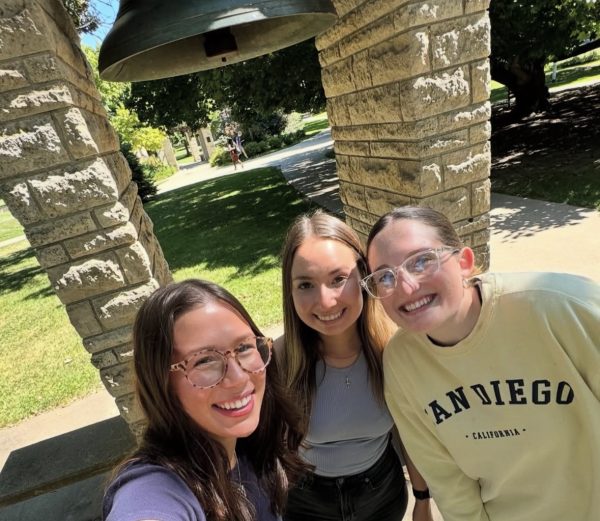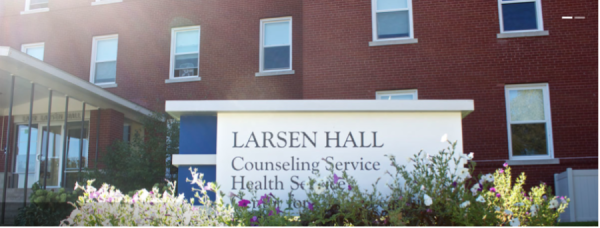Luther College 8th Most Sustainable Baccalaureate
Luther College was recently named the 8th Most Sustainable Baccalaureate Institution in the United States by the Association for the Advancement of Sustainability in Higher Education (AASHE), moving up from the previous award of 9th place. This award comes after some setbacks in Luther’s goals for sustainability, including losing staff and resources, as well as having to put some programs on pause during the COVID-19 pandemic. Luther College President Jenifer Ward stated that she was proud of the college’s continued commitment to sustainability even during these difficult times.
“Luther [has had] a consistent commitment to sustainability,” President Ward said. “We’ve been really consistent, even when the wind was blowing in the other direction.”
Between efforts to emphasize the importance of locally sourced food, expanding programs such as composting and Green-N-Go containers, and focusing on generating more renewable energy and neutralizing Luther’s carbon footprint, Luther has pinpointed many areas of stewardship and sustainable living such as renewable energy.
“Luther has studied how to heat and cool our campus without burning natural gas. We have a plan for how to do that that has 2 or 3 major options, and each of those options include some sort of [alternative energy source],” Martin-Schramm said. “Luther is continuing to look forward in progressing towards total neutrality and sustainable living, both on the large scale, such as the Energy Master Plan, as well as on a smaller scale, such as what individual students can do to make a difference.”
The overall score is based on a variety of factors such as academics, engagement, operations, planning and administration, and innovation and leadership. Luther received a high score in the academics department, with notable inclusion of sustainability in curriculum across 75% of academic departments. Professor of Religion Jim Martin-Schramm is one of the leaders in sustainability at Luther, and has made it a goal that all students leave Luther with knowledge and concern for sustainability and environmental justice.
“We’ve got [students] for four years,” Martin-Schramm said. “Ideally, we will, over those four years, help cultivate, new habits that will continue after [students] leave Luther. Whether it be around energy conservation, material recycling, paying attention to your diet and where your food comes from, being concerned about social justice and environmental justice- those are all things that we’re hoping to have an impact on while [students] are at Luther.”
Education on sustainability has always been a priority at Luther, as evidenced by the student involvement at the Center for Sustainable Communities. At the center, students head up and organize task groups, focusing on energy consumption and conservation, water usage, and greenhouse gas reduction goals. Students work as Sustainability Educators, working on campus outreach to inform students how they can be more involved in sustainable practices. For Elise Wilson (‘24), Luther’s efforts toward sustainability were a major factor in her decision to enroll.
“The efforts into carbon neutrality [on campus] was my big thing,” Wilson said. “Every time they would talk about their set of values and interests, [it] was the best I had ever heard from any institution.”
Wilson is one of the Sustainability Educators at the Center for Sustainable Communities; she works on the biweekly newsletter, the social media accounts, and is currently planning events for Climate Justice Week. This week is centered around raising awareness for the intersectionality of Climate Justice and Social Equity, and is planned to take place surrounding Earth Week: April 18-23, 2021.
“There’s so many little things people can do,” Wilson said. “Talk to your friends about your sustainable efforts. Little conversations can be super impactful. Follow our social media; there are so many volunteer opportunities promoted through the newsletter and social media. Actually follow the guidelines for organizing waste, it may seem silly, but it’s necessary.”
As far as Luther has come in its commitment to sustainability, the college is far from the finish line. Its next big project is the Energy Master Plan and 2030 Carbon Neutrality Goal.





